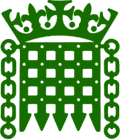|
|
|
|
|
What
Happens when a General Election is to be called?
Background The members of the House of Commons are elected by universal adult suffrage. At present there are 659 Constituencies or seats, 529 for England, 72 for Scotland, 40 for Wales and 18 for Northern Ireland Parliament is for a maximum period of 5 years and as long as the Leader of the Largest Political Party or Parties holds a majority of the votes in The House of Commons, he or she is called Her Majesty's Prime Minister, First Lord of the Treasury and Minister for the Civil Service. At any time in the life of the Parliament the Prime Minister may visit the Monarch, presently Her Majesty the Queen, and request a Dissolution of Parliament. The Queen normally will agree to Her Prime Minister's request but She is not bound to do so. Dissolution is normally effected by a royal proclamation. A session of Parliament is called under Royal Command "to cause an election to be held." (See Form of writ for each constituency). The Crown Office then formally sends the Writ to the Returning Officer of each constituency for them to execute. The Returning Officer for all the County Seats is the County High Sheriff (see High Sheriff of Lincolnshire) but the receipt of the writ is usually sent to the Acting Returning Officer who is the Chief Executive of the Council, who takes this extra post on personally. In County Boroughs or former County Boroughs the High Sheriff is not involved, Therefore in the Great Grimsby Constituency the Mayor of North East Lincolnshire is the Returning Officer and the Chief Executive of the Council is the Acting Returning Officer but in Cleethorpes the Returning Officer is the High Sheriff Of Lincolnshire. Where the High Sheriff is the Returning Officer, he / she can retain the right to announce the result provided notice is given "… not later than the day following that on which the writ is received (i.e. by the Acting Returning Officer to whom it is sent)." |
